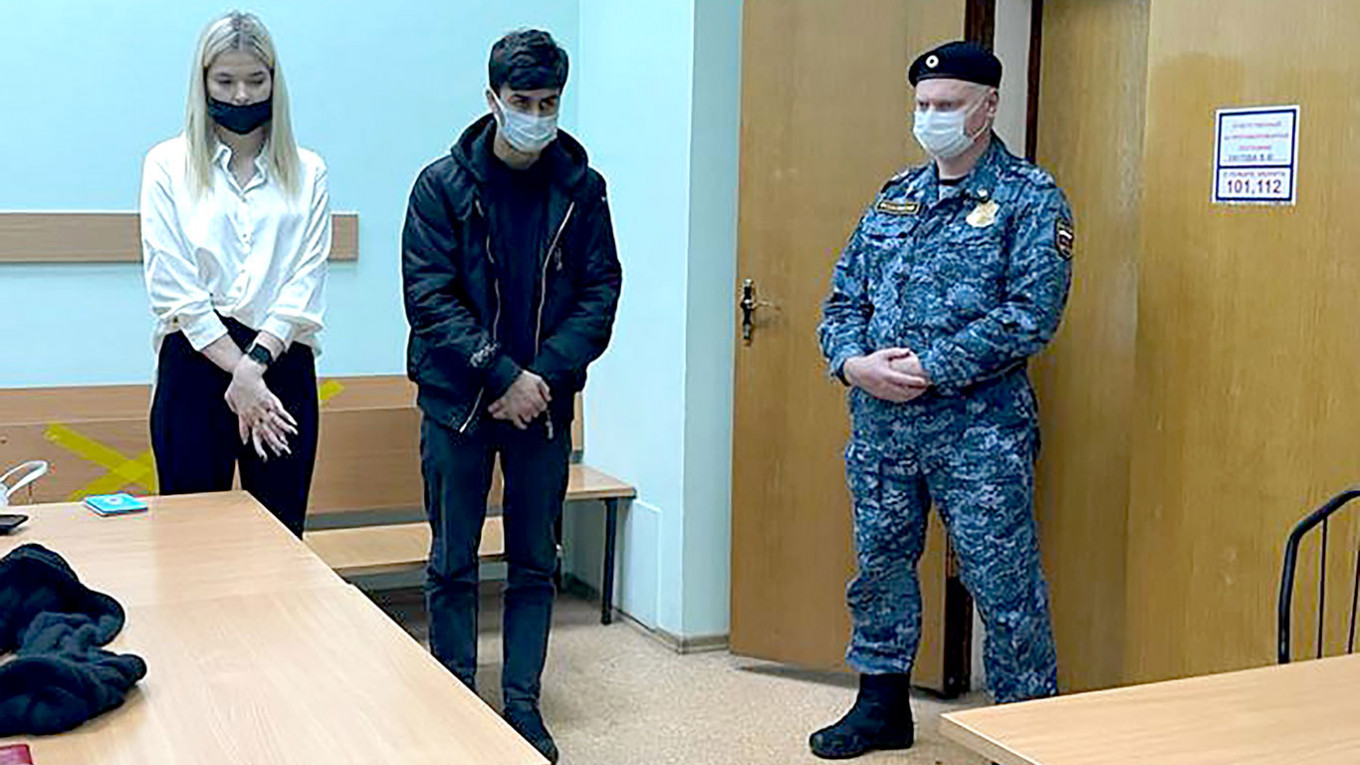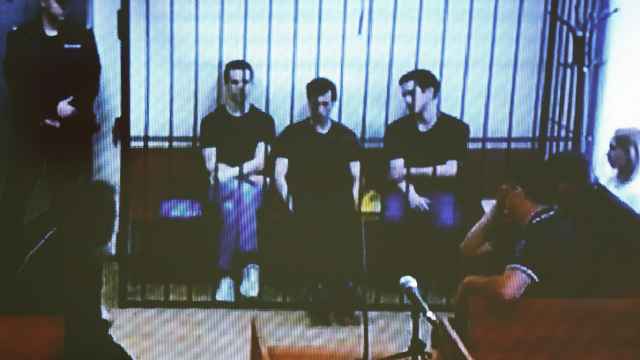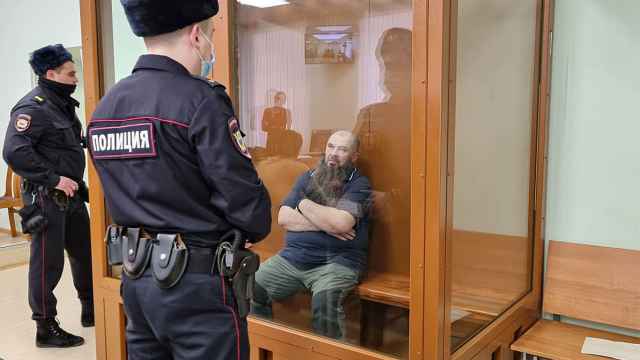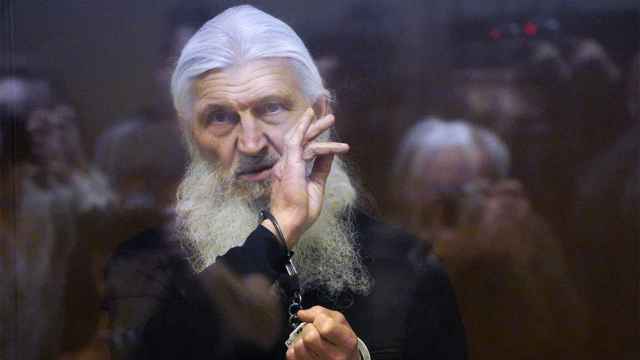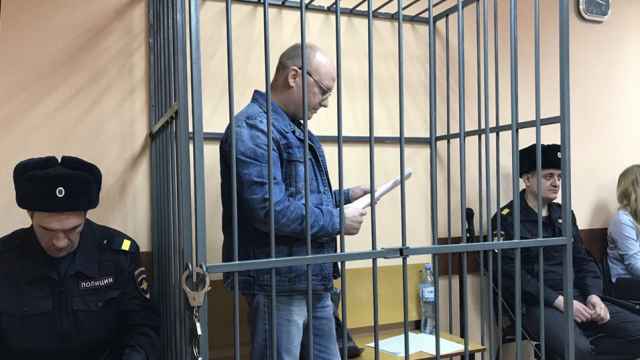Russians are increasingly facing prosecution for posting provocative photos of themselves in front of religious landmarks in what analysts say reflects the Kremlin’s intensifying focus on defending conservative values.
At least four cases have been launched in recent weeks against young people, mostly women, for posting sexually suggestive content on social media near places of worship.
Last week, blogger Ruslan Bobiyev, 23, and his girlfriend Anastasia Chistova, 19, were each sentenced to 10 months in prison on charges of “insulting religious feelings” over a photo that shows them simulating oral sex against the backdrop of St. Basil’s Cathedral on Red Square.
The sentence was criticized as overly harsh as many expected a slap on the wrist and a fine.
The pair “are the first people in a long time to get real prison time under this article,” Alexander Verkhovsky, an analyst at the Sova Center rights group, told The Moscow Times.
“I think they received prison time because the girl had ‘police’ written on her jacket, so it’s the police’s feelings that were insulted,” he said, referring to the mock police uniform Chistova was wearing in the photo.
The court also handed Bobiyev, a Tajik citizen, a deportation order. In a video published by the Interior Ministry, Bobiyev can be seen asking the Russian nation for forgiveness.
Last month, 22-year-old Lolita Bogdanova faced similar charges for flashing her breasts in front of the same cathedral. Instead of facing prison or a fine for the video, which she says was filmed years ago and posted by someone else, she signed an agreement not to leave Russia.
In a separate case, police on Saturday detained 31-year-old model Irina Volkova for a photo where she is seen posing in thong underwear in front of St. Isaac’s Cathedral in St. Petersburg. While a court ruled Sunday to release Volkova from custody because she has a son, she faces up to a year in jail on the charges of “insulting religious feelings.”
“There are a lot of ridiculous cases that are not worth the institution of criminal cases, simply because of their insignificance,” Verkhovsky told The Moscow Times.
The series of cases reflects Russia’s turn toward socially conservative values in the past decade under President Vladimir Putin’s leadership.
At last month’s Valdai Discussion Club, Putin publicly slammed Western liberal values, deriding cancel culture, so-called “reverse racism” and the “monstrous” forcing of transgenderism onto children as the antithesis of Russia’s values.
The “insulting religious feelings” law was passed in 2013 in response to activist group Pussy Riot’s anti-Putin performance at Moscow’s Christ the Savior Cathedral. Pussy Riot members Maria Alyokhina and Nadya Tolokonnikova would spend two years in a prison colony for the act on hooliganism charges.
“The wording of the [Criminal Code] article actually describes Pussy Riot’s performance, because they were first tried for hooliganism, but it did not quite fit with the events, so they came up with a law that would describe what happened,” Verkhovsky said.
Alyokhina said several “repressive” laws that have been passed or expanded since 2013 are being widely applied today, including the country’s controversial “foreign agents” law and the Yarovaya package expanding law enforcement agencies’ authority.
The Pussy Riot activist said she and Tolokonnikova were some of the earliest victims of the laws that would come to define Russia’s crackdown on the opposition and liberal values over the next decade.
“I received a number of letters during that time saying that dancing in churches is bad, but it does not qualify a prison sentence,” Alyokhina said.
A Message from The Moscow Times:
Dear readers,
We are facing unprecedented challenges. Russia's Prosecutor General's Office has designated The Moscow Times as an "undesirable" organization, criminalizing our work and putting our staff at risk of prosecution. This follows our earlier unjust labeling as a "foreign agent."
These actions are direct attempts to silence independent journalism in Russia. The authorities claim our work "discredits the decisions of the Russian leadership." We see things differently: we strive to provide accurate, unbiased reporting on Russia.
We, the journalists of The Moscow Times, refuse to be silenced. But to continue our work, we need your help.
Your support, no matter how small, makes a world of difference. If you can, please support us monthly starting from just $2. It's quick to set up, and every contribution makes a significant impact.
By supporting The Moscow Times, you're defending open, independent journalism in the face of repression. Thank you for standing with us.
Remind me later.



